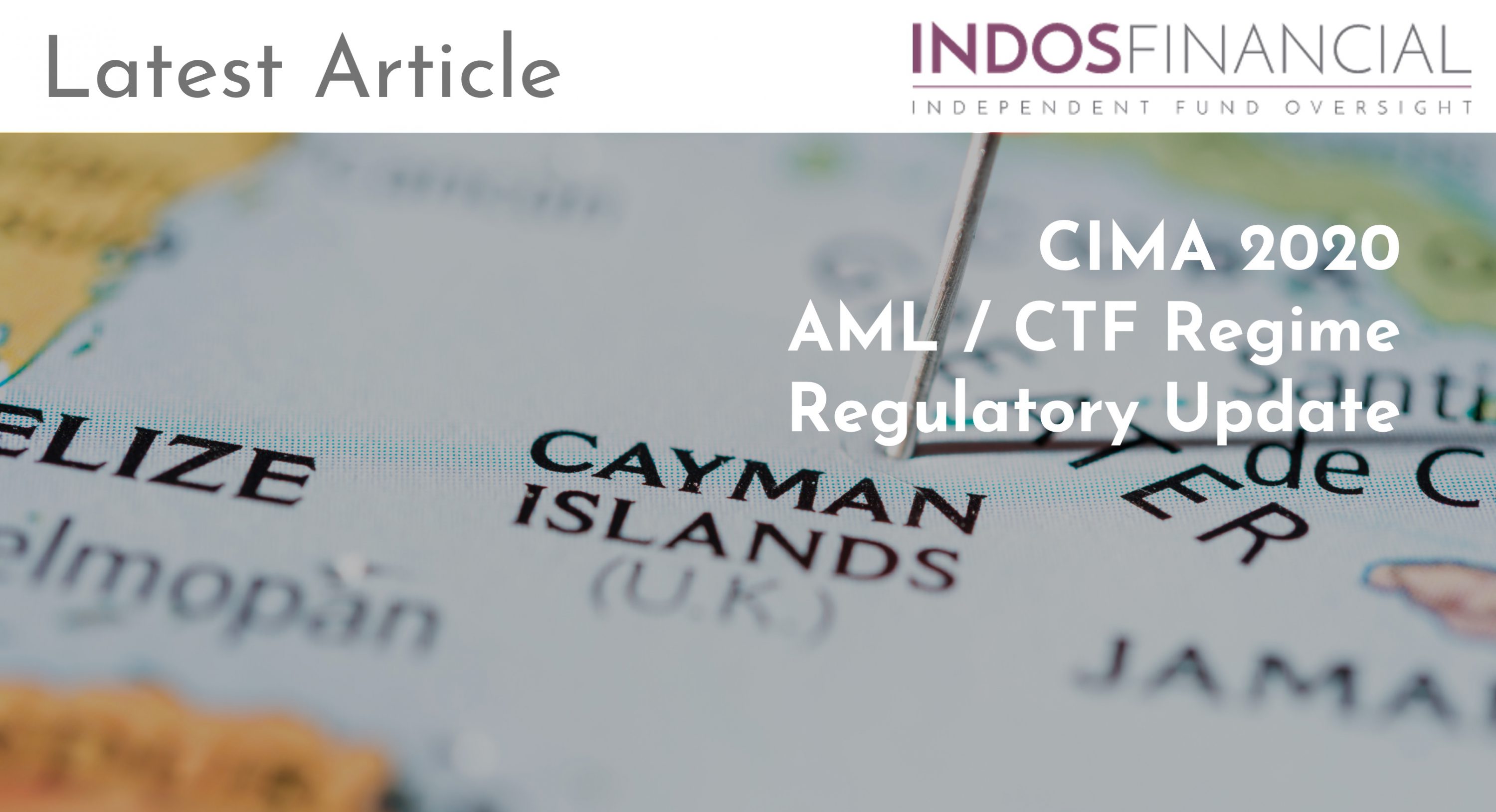The Cayman Islands Monetary Authority (CIMA) has recently announced several changes to the Cayman Islands Anti Money Laundering (AML) / Combatting the Financing of Terrorism (CFT) regime.
Equivalent Jurisdictions List to be removed
The Equivalent Jurisdiction List currently operated by CIMA will no longer be in place from 5 August 2020. Thereafter, all Financial Service Providers or their AML/CFT service providers must perform their own assessment of the level of money laundering and terrorist financing risk a country presents.
Risk Based Assessment in Practice
Clarification of the areas of risk that should be considered and factored into any working risk-based assessment include:
- Customer / investors
- Products and services being offered
- Geographical risks; and
- Delivery channel risk.
Senior management should agree and document a risk tolerance they are willing and not willing to accept during the course of business. The risk assessment should be documented and reviewed annually.
Application of Simplified Due Diligence
The process of assessing a country’s risk should be documented, and factor in reports published by leading international bodies such as FATF, UN and IMF. CIMA has further clarified that the application of simplified due diligence by AML/CFT service providers is only allowed from a country deemed to be low risk from an AML/CFT perspective.
Sanction Guidance Updated
All new and existing clients should be screened regularly by the Financial Service Provider (FSP) against the list of designated persons/entities, and the consolidated list, maintained by the United Kingdom Office of Financial Sanction Implementation (OFSI). The Financial Reporting Authority’s website provides a link to the consolidated list of financial sanctions targets issued by the UK’s OFSI.
It is the responsibility of every FSP to keep itself updated on and comply with the TFS in force in the Cayman Islands. Official sanctions order applicable in the Cayman Islands are published in the Cayman Islands Gazette.
Ongoing Monitoring
FSPs and / or their AML / CFT service providers should ensure they have documented policies and processes in place regarding the on-going monitoring of their investors / customers. Monitoring of customer due diligence, ensuring documents and know Your Client (KYC) information remains up to date, alongside periodic and trigger event-based reviews are all expected measures which need to be in place to demonstrate sufficient on-going monitoring. Processes and controls surrounding transaction monitoring and the required steps for reporting any suspicious activity must also be documented.
10% Beneficial Ownership Threshold
CIMA has clarified the application of the Cayman Islands AML regulations to all jurisdictions where the standards are less strict than those set forth by AML regulations.
Eligible Introducers
Eligible Introducer arrangements have also been amended to include the identity of the applicant and their beneficial owners. It is noted that all Eligible Introducers and nominees should be located in a low risk country, as per the risk rating decided upon the AML / CFT service provider. It is important to note that the removal of the Equivalent Jurisdiction List may require an internal review and risk rating currently in place. Eligible Introducer testing remains in place with periodic testing to ensure that the Eligible Introducers can provide the requested due diligence documentation and information in a timely manner upon request.
Virtual Asset Services
Virtual asset services will become “relevant financial business”. A registration and licensing regime for virtual asset service providers will be implemented following a consultation phase which is due to end on 8 April 2020.
For further details about these requirements and how they will impact Cayman Islands domiciled funds and their services, please contact Matthew Queree (Head of AML Services) at [email protected].
The guidance notes and Anti-Money Laundering Regulations can be viewed here:
Anti-Money Laundering Regulations (2020 Revision)
Anti-Money Laundering (Amendment) Regulations (2020 Revision)




